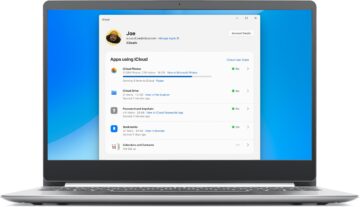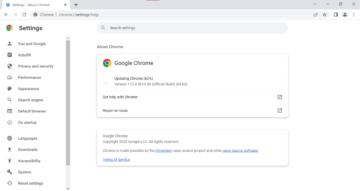
Does your PC feel slow today? Microsoft is reporting that the latest update to Windows 11 may be slowing down copying files on your PC’s SSD, yet again.
In the support notes attached to the Windows 11 2022 Update (in this case, build 22621.1413), Microsoft says that big, multi-gigabyte file transfers may be slower than usual because of a bug that Microsoft is working to fix. Microsoft says that you’ll likely experience this issue when downloading files from a network server, “but local file copy might also be affected.”
Microsoft is working on a permanent fix, but it isn’t here yet.
In December, users complained to Microsoft that they were seeing drastically reduced performance on some NVMe SSD drives, with write speeds dropping by half in some cases. Microsoft later issued a patch to fix the SSD slowdowns, but by then consumers had been frustrated by their slow performance. That patch took about 10 days to issue, and Microsoft published its initial warning of the storage slowdown problem on March 14.
Microsoft insists that Windows devices used by consumers in their home or small offices are not likely to be affected by this issue, though Hot Hardware unearthed a Reddit thread that shows that yes, some consumers seem to be suffering from the storage slowdown bug, too. (Microsoft hasn’t acknowledged that the problem is specific to SSDs, though SSD users seem to be most affected.)
“Tanked my SSD NVMe reading and writing speeds, like A LOT,” one user wrote. “Went from 7,000 to 3,000, sometimes 1,000, using the balance energy profile in my Legion 5 2021. Just uninstalled the cumulative update and my SSD is reaching the 7,000 read speed again and Windows is snappy again.”
Microsoft says there is a workaround: You can use file-copy tools that do not use cache management techniques. To do so, enter the command-line commands robocopy \someserversomeshare c:somefolder somefile.img /J or xcopy \someserversomeshare c:somefolder /J. Otherwise, you’ll just have to wait until Microsoft issues a fix for the problem, or try uninstalling the patch yourself. Doing so, though, will also undo any security patches Microsoft has issued in conjunction with the update.
- SEO Powered Content & PR Distribution. Get Amplified Today.
- Platoblockchain. Web3 Metaverse Intelligence. Knowledge Amplified. Access Here.
- Source: https://www.pcworld.com/article/1663285/windows-11-may-be-slowing-down-your-ssds-again.html
- :is
- 000
- 1
- 10
- 11
- 2021
- 2022
- 7
- a
- About
- and
- ARE
- attached
- Balance
- BE
- because
- Big
- Bug
- build
- by
- cache
- CAN
- case
- cases
- Consumers
- copying
- Days
- December
- Devices
- doing
- down
- Dropping
- energy
- Enter
- experience
- File
- Files
- Fix
- For
- from
- frustrated
- Half
- Have
- here
- Home
- HTML
- HTTPS
- in
- initial
- issue
- Issued
- issues
- IT
- ITS
- jpg
- latest
- legion
- like
- likely
- local
- Lot
- management
- March
- Microsoft
- might
- most
- network
- Notes
- of
- offices
- on
- ONE
- otherwise
- Patch
- Patches
- PC
- performance
- permanent
- plato
- Plato Data Intelligence
- PlatoData
- Problem
- Profile
- published
- reaching
- Read
- Reading
- Reduced
- Reporting
- says
- security
- seeing
- Shows
- slow
- Slowdown
- slowdowns
- Slowing
- small
- So
- some
- specific
- speed
- speeds
- storage
- suffering
- support
- techniques
- that
- The
- their
- to
- today
- too
- tools
- transfers
- Update
- use
- User
- users
- wait
- warning
- will
- windows
- windows 11
- with
- working
- write
- writing
- Your
- yourself
- zephyrnet












